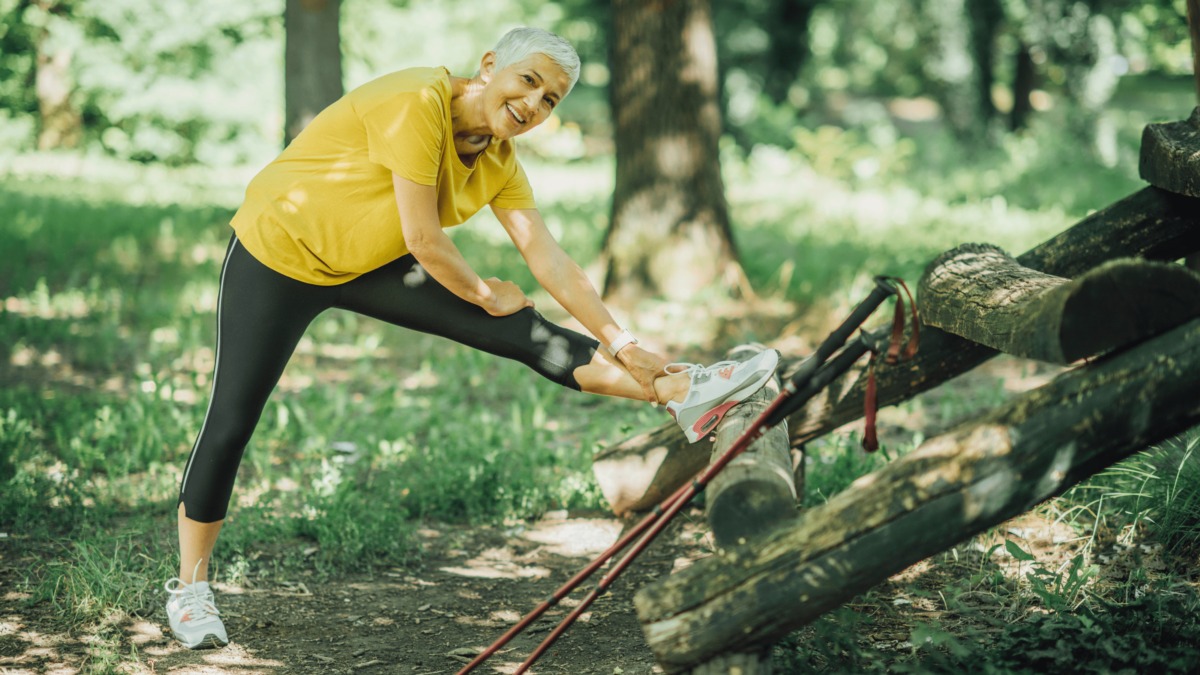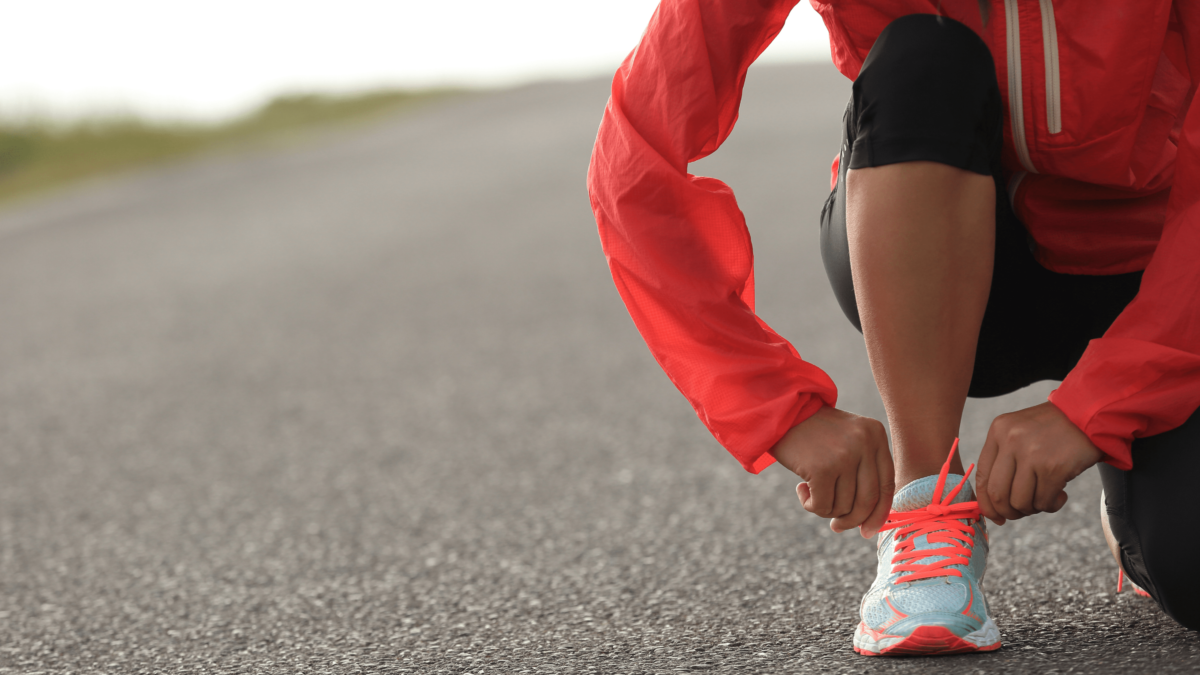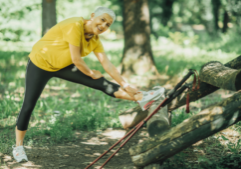Wellness Action Item: Exercise

Whether you are an experienced gym enthusiast, a runner or active in a healthy aerobic sport, there is no single act that one can commit to than voluntary physical exercise in support of personal health and wellness. Physical exercise has been described as the best antioxidant supplement in existence (Kravitz 2009, Ristow 2009). As you are well aware, the American Heart Association recommends, “Get at least 150 minutes per week of moderate-intensity aerobic activity or 75 minutes per week of vigorous aerobic activity (or a combination of both), preferably spread throughout the week” (AHA 2020). (A helpful PDF handout may be downloaded for your practice to give to patients here.) We know this. We teach this to our patients. But do we do this?
If you are just beginning an exercise regimen, consider beginning by simply doing what you can. Try to identify distractions and resistances to “getting out there” and consider them in comparison to the emotional and physical benefits that await you upon embarking on a practical exercise regimen. Of course, always check with your own doctor first if there is any question as to whether a health issue might limit you safely exercising. One way is to start with a 10-minute walk outside or your home once a day or as many times as you are able. Then begin to walk alternating between jogging gently and walking for 1-minute each or at whatever interval you are comfortable with. Increasing your walking to jogging ratio eases the intensity of the exercise. Emphasis should be on consistency – get out there – and on enjoying the experience. Notice how you feel afterwards. Better? I hope so. Overexerting is often a significant problem with beginning an exercise regimen. Our egos may get in the way here. When we begin an exercise regimen too quickly our deconditioned bodies are hit hard with oxygen debt leading to an overwhelming drive to breathe deeply associated with feeling of breathlessness. This feels terrible. At a subconscious level, it is the equivalent of giving your brain stem a “punch in the nose;” it is painful at a deep psychological level. It is no wonder many of us avoid exercise. I did for years. If we emphasize frequency and enjoyment of the experience over the intensity of the exercise, we feel better afterwards and are much more likely to want to persist and develop those weekly exercise habits that offer so much in the way of emotional and physical health.

References
American Heart Association (AHA). American Heart Association Recommendations for Physical Activity in Adults and Kids. Published online 2020 <https://www.heart.org/en/healthy-living/fitness/fitness-basics/aha-recs-for-physical-activity-in-adults>
American Heart Association (AHA). How much physical activity do you need? Published online 2020 <https://health.gov/sites/default/files/2019-09/Physical_Activity_Guidelines_2nd_edition.pdf>
Kravitz L. Is Exercise the Best Antioxidant Supplement? Published online 2009. < https://www.unm.edu/~lkravitz/Article%20folder/Antioxidants.pdf>
Ristow M, Zarse K, Oberbach A, Klöting N, Birringer M, Kiehntopf M, Stumvoll M, Kahn CR, Blüher M. Antioxidants prevent health-promoting effects of physical exercise in humans. Proc Natl Acad Sci U S A. 2009 May 26;106(21):8665-70. doi: 10.1073/pnas.0903485106. Epub 2009 May 11. PMID: 19433800; PMCID: PMC2680430.
Disclaimer
This blog is for informational purposes only and is not intended to serve as medical advice, diagnosis, or treatment. Always consult with a licensed healthcare professional for personalized care.







